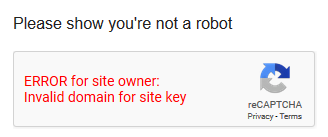PubChem
World's largest collection of freely accessible chemical information. Search chemicals by name, molecular formula, structure, and other identifiers. Find chemical and physical properties, biological activities, safety and toxicity information, patents, literature citations and more.
Visual Element Periodic Table
A visual interpretation of the table of elements.
WebElements
Contains an abundance of property data on the first 112 elements of the periodic table.
Common Chemistry
Contains CAS Registry Numbers for approximately 7,900 chemicals of widespread general public interest.
ChemSpider
A free chemical structure database from the Royal Society of Chemistry providing fast access to over 25 million structures, properties, and associated information. It enables researchers to discover the most comprehensive view of freely available chemical data.
NIST Chemistry WebBook
Provides users with easy access to chemical and physical property data for chemical species through the internet. The data provided in the site are from collections maintained by the NIST Standard Reference Data Program and outside contributors. Data in the WebBook system are organized by chemical species. The WebBook system allows users to search for chemical species by various means. Once the desired species has been identified, the system will display data for the species.
NIST Free Standard Reference Data
Freely available NIST scientific and technical data over a broad range of substances and properties from many different scientific disciplines.
NIST Physical Reference Data
Includes physical constants, atomic and molecular data, nuclear physics, condensed matter, and more.
Organic Syntheses
Provides detailed, reliable, and carefully checked procedures for the synthesis of organic compounds. Some procedures describe practical methods for the preparation of specific compounds of interest, while other procedures illustrate important synthetic methods with general utility. Each procedure is written in considerably more detail as compared to typical experimental procedures in other journals, and each reaction with its characterization data has been repeated several times and carefully "checked" for reproducibility in the laboratory of a member of the Board of Editors.
Spectral Database for Organic Compounds, SDBS
Integrated spectral database system for organic compounds, which includes 6 different types of spectra under a directory of the compounds: electron impact Mass spectrum (EI-MS), Fourier transform infrared spectrum (FT-IR), 1H nuclear magnetic resonance (NMR) spectrum, 13C NMR spectrum, laser Raman spectrum, and electron spin resonance (ESR) spectrum.
DrugBank
A unique bioinformatics and cheminformatics resource that combines detailed drug data with comprehensive drug target information. The latest release (version 5.1.3, released 2019-04-02) contains 13,336 drug entries including 2,593 approved small molecule drugs, 1,288 approved biotech (protein/peptide) drugs, 130 nutraceuticals, and over 6,304 experimental drugs.

